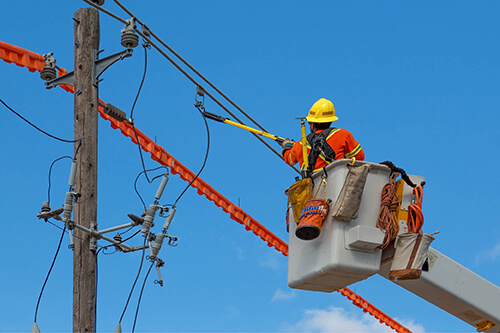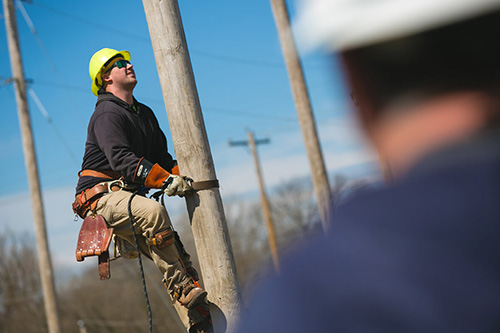
Energy Programs
Surge forward with energy education. Careers in solar technology, utilities, wind power, and telecommunications are known for high earning potential, new technology, and excellent job growth. Ready to focus on your future in renewable energy or utilities? Go after it. We're ready to help you get there.
- Power up your earning potential. Our 2021 grads from Electrical Power Distribution and Gas Utility Construction programs earned a median starting salary between $60,000 and $61,000 per year. See more high-pay programs.
- Train in real world labs. NWTC's Great Lakes Energy Education Center is our innovative 30,000 square foot facility housing programs in power generation, transmission and management. The building is powered by renewable energy and showcases energy-efficient design technologies. In addition, our 13-acre Outdoor Utilities Lab was specifically designed by NWTC instructors to provide hands-on, industry-relevant training.







